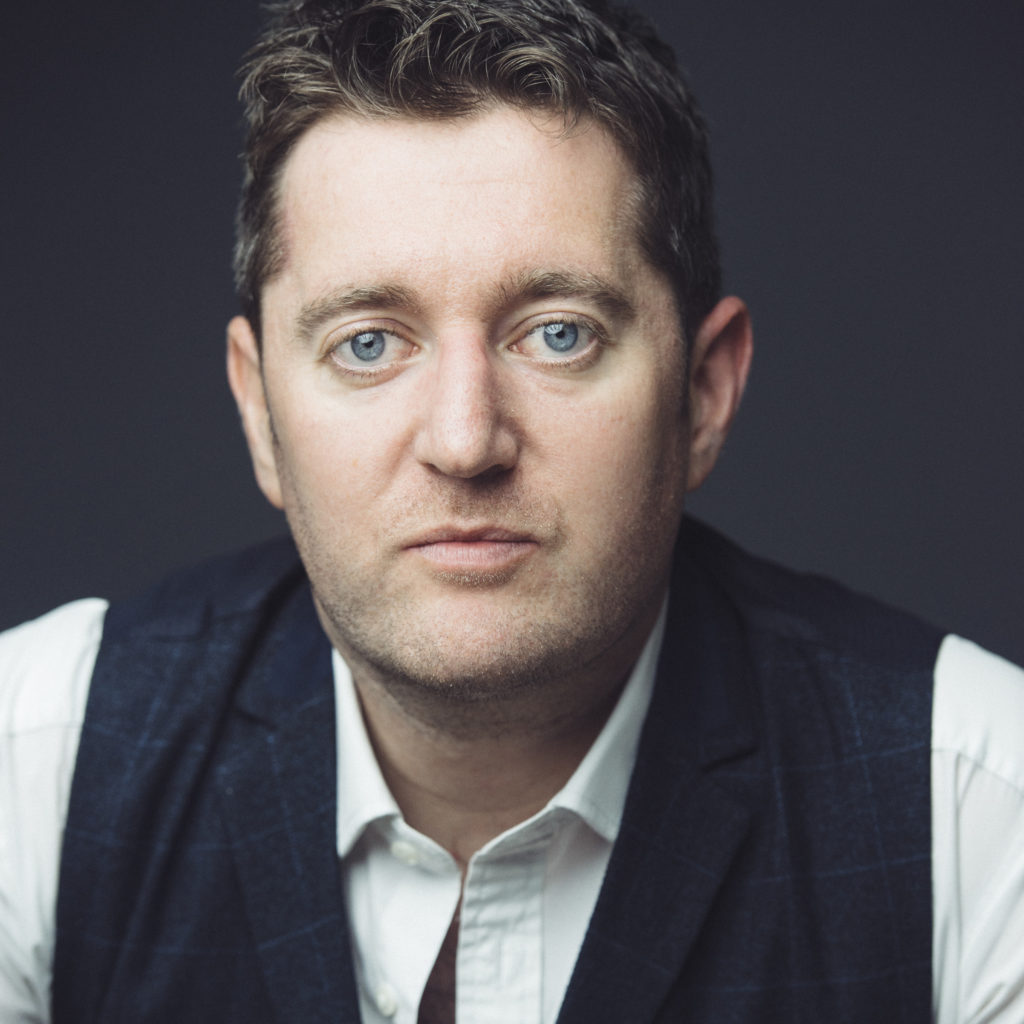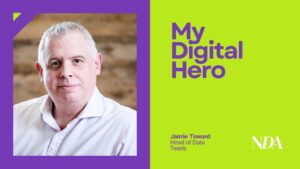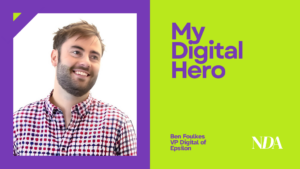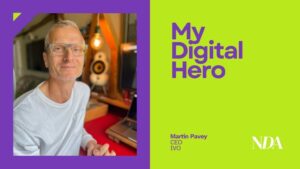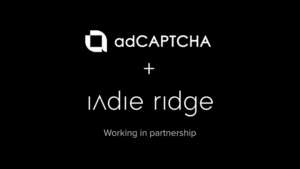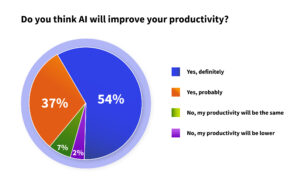We’re asking some of our industry’s leading figures to nominate their digital hero and to explain what’s so special about them.
Pete Trainor is the author of Human-Focused Digital. An applied artificial intelligence designer, he is the co-founder of Us Ai.
Who is your digital hero?
Such a complicated question to answer because I have so many people I admire, look-up too, and have been fortunate enough to work alongside. When I think of heroism, I think of acts of bravery and putting others first even if it means compromising oneself.
I think of courage, outstanding achievements, and noble qualities. When I think of it like that, my head turns not to the apparent leaders to hero-worship, but to a group of people at the back pushing it all forward.
In the book ‘Giovanni’s Room’, the author James Baldwin writes; “It takes strength to remember, it takes another kind of strength to forget, it takes a hero to do both. Heroes are rare.”
So instead of picking out just one person, and raise them up above many others, let me instead say that throughout my career it has always been the design-thinkers and doers in all their colourful guises that I look upon as my industry heroes.
More often than not it’s the strategic designer’s job to try and reinvent old things and make them better – often against the natural corollary of business thinking and process. It’s these childlike “why askers” who dare to suggest that problems that exist in the world can be fixed using better thinking, and radical technologies.
And it’s the designers who go out into the wild and research the human problems, so they have an empathetic understanding, to design the best version of something new, rather than a better version of something that already exists.
Anybody who asks the question “why”, rather than kowtow to the chiefs, or automatically executing on a brief that is set before them is a hero in my book. In an industry that prides itself in spewing out as much exhaust as possible, removing the noise can be a heroic act.
What have they done to win hero status in your eyes?
Among this vibrant, and often under-valued design community, the quality that sets the good apart from the OK, is the innate curiosity about why people are doing the things they are doing. Why people are actually using the stuff that we build. Are there perhaps psychological reasons? Neurological reasons?
Stopping to question every little detail is probably the most important thing we can do in a new world order. They want to make the world a bit better than where they found that.
Here’s a good example – 10 years ago, when smartphones were just bedding in, and social media was being born, I started studying the detrimental effects this new world could begin having on its rapidly growing audiences. We were doing studies showing that the way we consume and participate in social media can have some very frightening effects on people’s mood. People sizing up their accomplishments against others, just could not be healthy. I was called foolish. I was told by my employers that it was ‘just technology and design’ and that making things easier to use, or more ‘sticky’ couldn’t possibly be harmful for people, because it was being designed to make the world a smaller, more connected place. What could possibly be wrong with that?
A small group of design-thinkers followed me through this way of thinking and explored my theories, often in their spare time. Blind faith in a feeling that all was not going to be OK. To those people, you are heroes in my eyes.
How has their heroism helped drive digital?
At the time we were called scaremongers and widely ignored by our bosses who were hellbent on getting the next app out, or winning the award for best flash-mob or viral campaign. Companies who actually told UX designers to make their service “sticky” (read addictive) and used things like the repetitive Tinder-Swipe as an example of “good design” when in reality those behaviours are pure evil.
People’s health wasn’t a KPI. But those designers who took on board a lot of what I was saying formed underground units and continued their talks and studies outside of day jobs. We snuck our thinking in the back-door and behold in 2018 and 2019 we’re seeing not only the behaviour of platform owners under scrutiny but unfortunately the health and behaviour of whole generations changed beyond all recognition.
But now, finally, is the time for my heroes to rise. The tech-for-good and service-design communities who have been heroic enough to get behind me over the last decade, the ones who stuck with me are moving to the front.
Finally, because of brave acts, and rebellions, our messages are finally breaking through. We’re being taken seriously, and we’re coming hard for the unethical monolithic organisations whose ad-revenue, and data-capitalism business models come at the detriment of health and happiness are being called out.
All those incredible designers who said “why?” and “no!” will finally have their voices heard, and a version of digital might emerge that is fairer, more balanced, and more appreciative of the humans, not the users.
What is your most heroic personal achievement so far in digital?
Saying “No”. I’ve said “No” a lot. I’ve lost contracts because of it. I’ve irritated and alienated some very senior industry figures over the years. I’m not proud to be the awkward one.
I’m not particularly excited about being classified as an innovator or even an activist, it keeps me awake at night, but when too many people nodded and said “yes”, I was worried about a future where all those “yes’s” drove us (and still are to a certain extent) off a cliff with no return for humanity.



